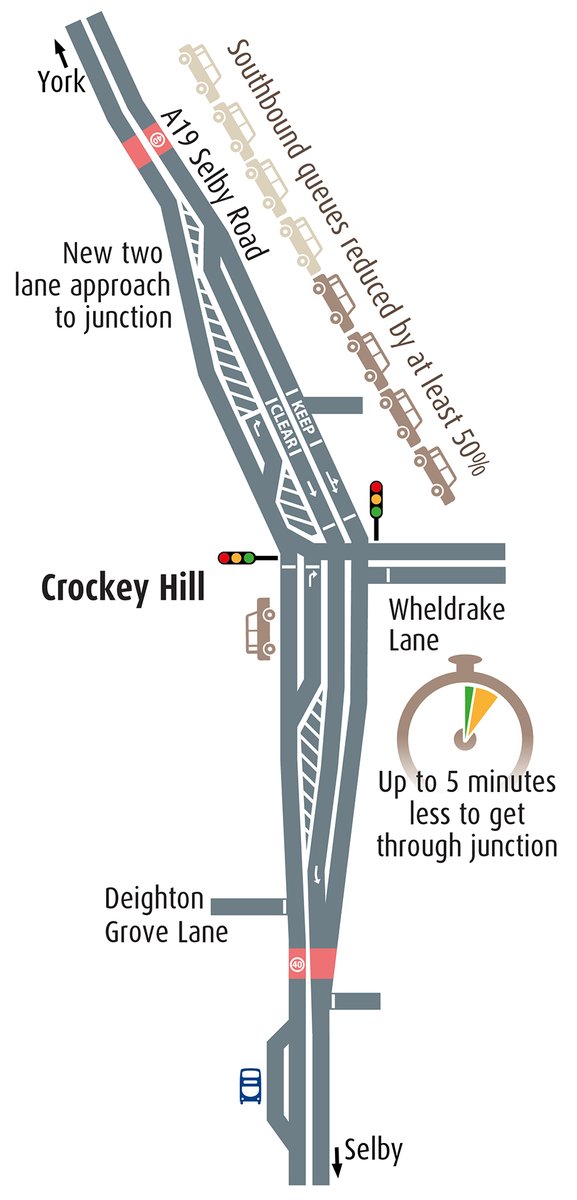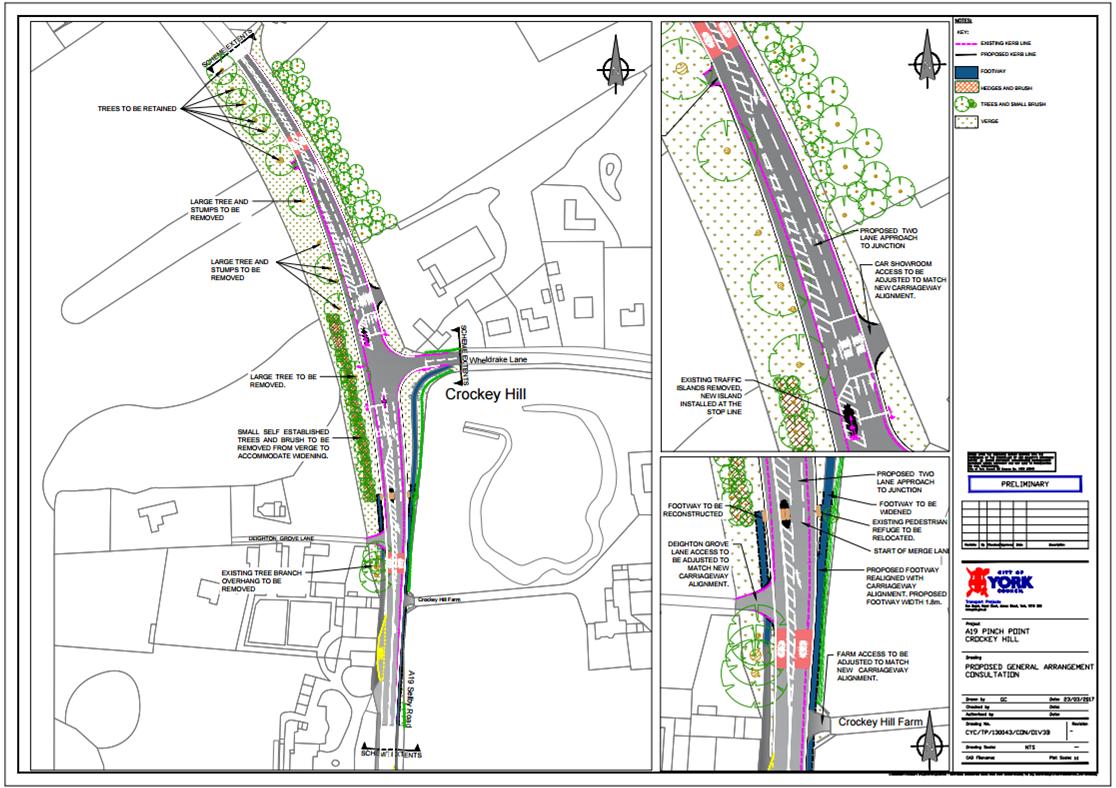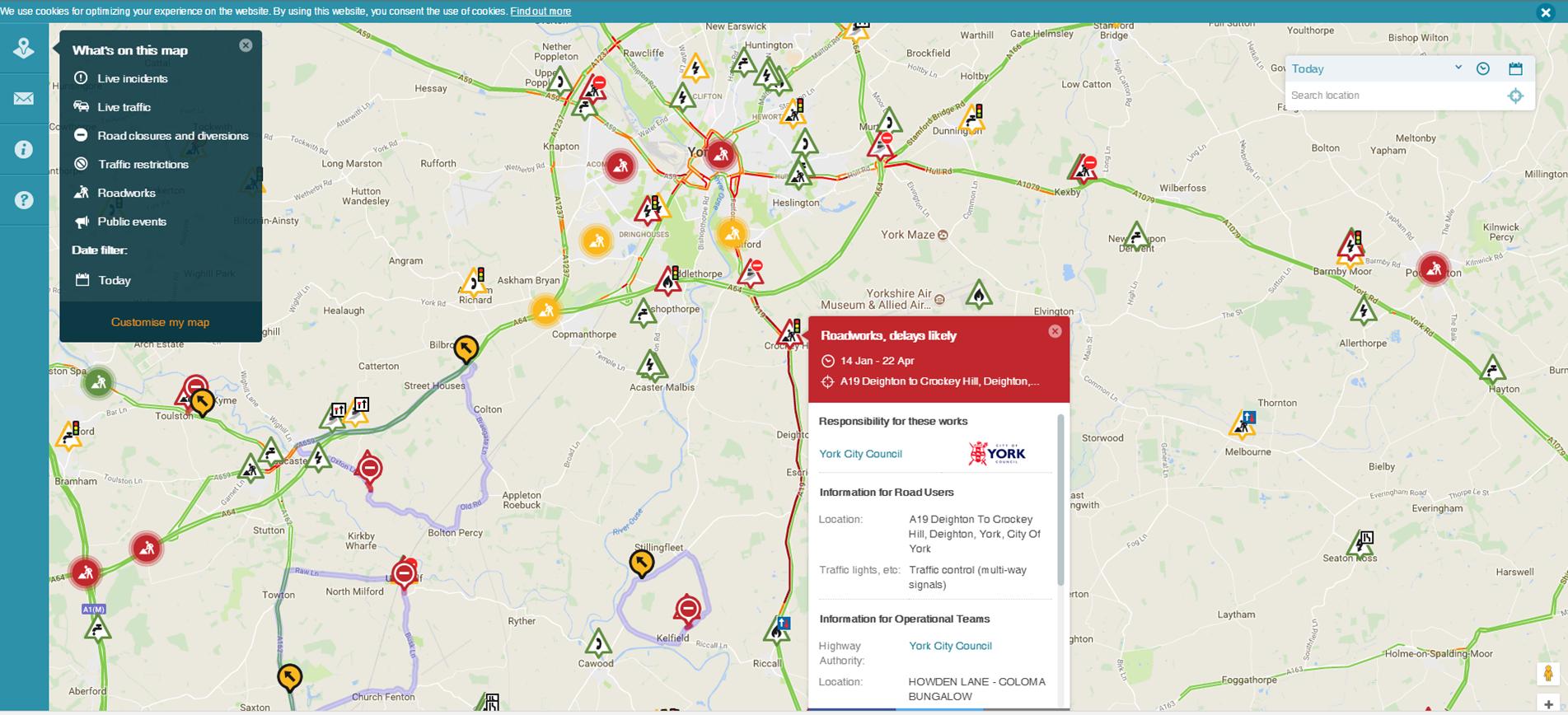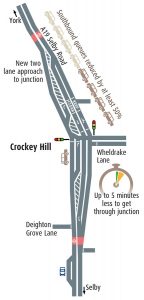 City of York Council is asking for comments on new proposals which could help reduce congestion on one of York’s busiest roads.
City of York Council is asking for comments on new proposals which could help reduce congestion on one of York’s busiest roads.
The scheme will reduce the average time taken to travel on the A19 South through the Fulford interchange junction and down the A19 to Crockey Hill by up to five minutes. The length of southbound queues will also be reduced by up to 50 per cent.
Over 20,000 vehicles use this route every day and at times over 1,200 vehicles use the junction every hour in one direction, which often causes queues and sections of the A19 to block.
As a result of so many vehicles using this road there are often large queues of traffic particularly southbound during busy times in the evening. This can cause what is known as a ‘pinch point’ or queues of traffic at the Crockey Hill traffic lights (junction of the A19 and Wheldrake Lane). This rapidly backs up to the A19/A64 Fulford Interchange which causes congestion on the A64 off slip-road and on the A19 in Fulford.
The scheme will help address this problem and supports phase 1 which was carried outover the summer of 2015. This helped to reduce congestion and improve public transport journey times and reliability northbound at the busy A19/A64 junction (near the Designer Outlet).
However, for southbound traffic going out of York, the problem of traffic queues in the evening remains. Phase two will help to ease the build up of congestion along this busy section of road, reducing the risk of blocking the A19/A64 junction and improving public transport reliability and journey times.
Funded entirely from the Department for Transport (DfT) pinch point fund, the scheme is estimated to cost approximately £1million.

(more…)


 The Council will be starting the second phase of work to improve the flow of traffic on the A19 south of York with works at the Crockey Hill junction with Wheldrake Lane starting on Sunday 14 January.
The Council will be starting the second phase of work to improve the flow of traffic on the A19 south of York with works at the Crockey Hill junction with Wheldrake Lane starting on Sunday 14 January. City of York Council is asking for comments on new proposals which could help reduce congestion on one of York’s busiest roads.
City of York Council is asking for comments on new proposals which could help reduce congestion on one of York’s busiest roads.